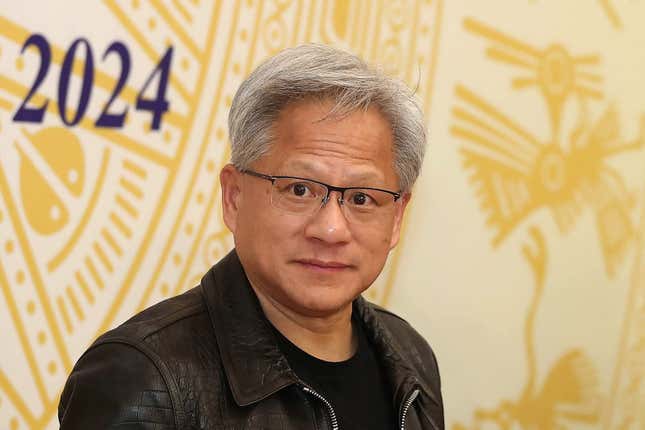
In This Story
Nvidia’s (NVDA) shares fell by almost 3% during mid-day trading on Monday after the Chinese government announced an investigation into the chipmaker. Fellow chipmakers Advanced Micro Devices (AMD) and Marvell (MRVL) also saw their shares fall by 4.4% and 5.2%, respectively.
China’s State Administration for Market Regulation said on Monday it has launched an investigation into the U.S.-based chipmaker for possibly violating anti-monopoly laws with its acquisition of Israeli chip designer Mellanox Technologies, according to China Central Television.
Nvidia bought the chip designer for $6.9 billion in 2020 and was given conditional approval by Chinese authorities that included a requirement to not bundle or tie together its products with Mellanox. The two chip companies were also required to continue supplying on fair terms and to make sure technology was compatible with chips manufactured by Chinese firms.
Other measures were designed to address tightening U.S. export controls targeting China’s chip firms.
In September, Nvidia and Microsoft (MSFT) were accused by Texas-based startup Xockets of monopolistic practices, patent infringement, and violating federal antitrust laws. The lawsuit alleges that Nvidia has infringed on Xockets’ patents since its acquisition of Mellanox, which had adopted the startup’s technology in 2016 without its knowledge or permission.
The lawsuit accuses Nvidia and Microsoft of infringing on Xockets’ patent for advanced data processing units, or DPUs, “that enable accelerated computing and artificial intelligence” in data centers.
Meanwhile, the Biden administration recently announced more restrictions on the sale of high-bandwidth memory and chipmaking tools to China, including tools produced by U.S. companies abroad. The new rules include controls on 24 types of semiconductor manufacturing equipment, as well as on three types of software tools that can be used to develop or produce chips, the Commerce Department’s Bureau of Industry and Security (BIS) said.
Another 140 unnamed Chinese entities — including semiconductor fabs, tool companies, and investment firms — accused of working on behalf of the Chinese government were also added to the U.S. trade blacklist.